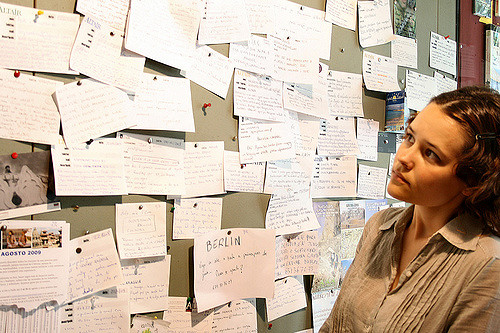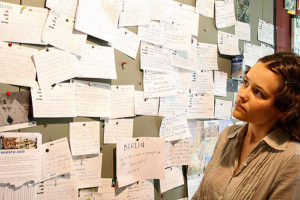We’re now living in the age of information overload. It’s not about the lack of information –
It’s that we have too much information.
The internet has made it too easy to create and share content and information around the world, not to mention looking for it.
What then do you do when you’re being bombarded by all of this information?
Focus on what’s important.
And eliminate the unimportant.
With all of the information around, it’s too easy to be distracted, and to be overwhelmed with all of the details and content available, describing, or related to the task at hand.
Before you go looking for information, figure out what’s the most important that you need to find out, and what result are you looking for the information to help you with.
Getting clear on what’s important will make it easy to just cut out 99.99% of the chaff, and will help you focus on the getting the result that you want. Which is why you’re looking for information in the first place.
It’s not about the amount of information you have.
It’s what you do with it.
Stop! And unplug.
Sometimes, the best way to deal with information overload, is to avoid it altogether.
We’re constantly bombarded by messages, emails, advertisements, stories, news, and all manner of information.
Modern life has made it easier for us to reach out to others. It has also made it equally easy for others to reach us.
Take some time off to unplug, and to disconnect from the world and all the messages and information it’s trying to send your way.
Plan ahead to be able to do this, so you don’t get interrupted by something that’s really urgent and important.
Also, having some unplugged time allows you to focus on yourself as well.
Unplug from all of the voices and noise coming from the outside.
And reconnect with the voice that’s coming from the inside.
Listen to those you trust.
One way to cut through the chaff and problem of having too much information, is to ask and consult with people and sources that you trust.
And what I mean by trust, is that you know and feel that they have your best interest at heart, and that they wouldn’t try to take advantage of you for their own benefit.
Look for people and sources who’ve got your back.
Put a time limit on the research.
When we have too much information, it can take us a long time to process it, and come to a decision. I also realized that having a lot of information and choices can paralyze us, just with the sheer amount of possibilities and alternatives to take in.
While it’s good to explore what’s out there, and to comprehensively research your options and information, it’s helpful to put a time limit on the research and information gathering, and to choose and commit to a course of action.
Sticking to a deadline helps make sure you get out of the research phase, and you get to the action phase, where reality happens.
Don’t get caught in information overload and analysis paralysis. Put a time limit, and just do.
Be aware of your biases and mindsets.
When faced with a ton of information, we tend to go what’s easier for us.
What’s easier for us to think about and accept.
We all have biases, mindsets, and psychology that makes it easier for us to think certain ways about certain things. These are the exact same things that make it hard for us to effect change, or change our mind.
One cognitive bias we have, when faced with information, is to look for confirming evidence – signs that say that we’re right.
Another cognitive bias that we have is our tendency to overestimate our own capabilities. That when there is a success, it is attributed to our abilities, but when there is failure, we put the reason on other factors, other than ourselves.
When we’re aware of our biases and mindsets, it can then set us free to look for the right information, and to act on it accordingly.
Don’t sink into information overload
Manage and curate the information that gets to you, or subscribe to sources that curate the information already.
Be aware of how your thoughts and feelings affect how you interpret the information that’s coming to you.
Most of all, reflect and identify what’s most important, and focus on that.
Don’t be controlled by the information.
Instead, control what you do with it.
How else do you deal with information overload? Please share in the comments below!


Leave a Reply